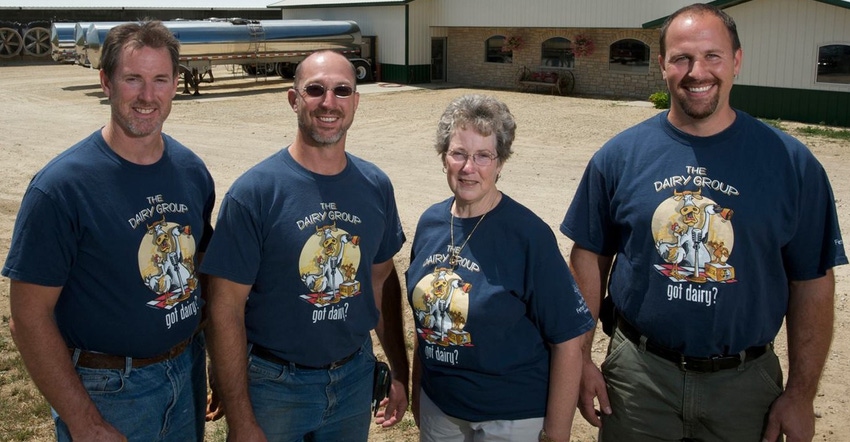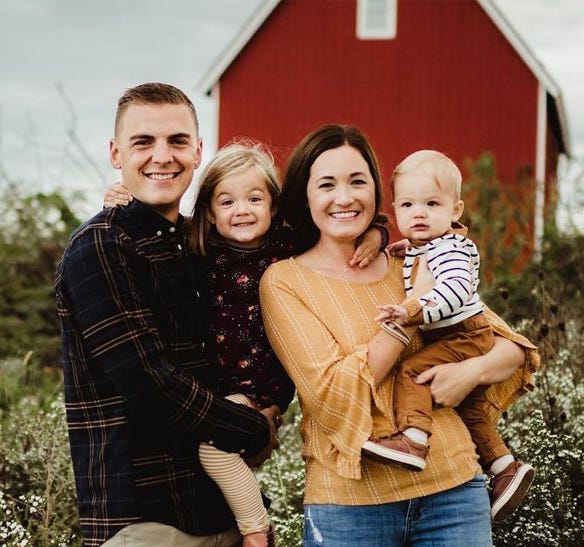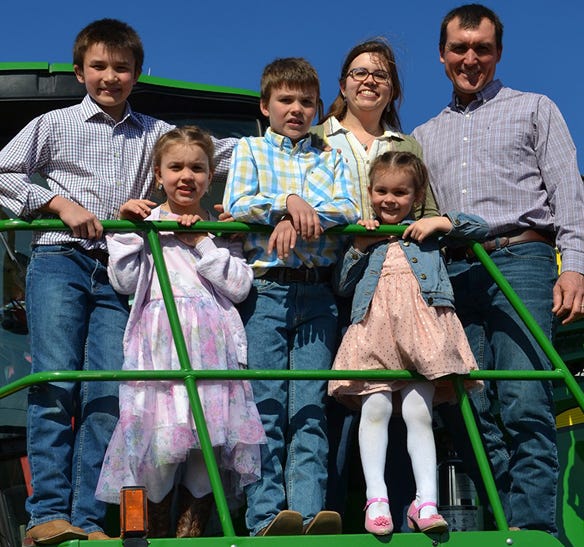March 15, 2021

As volatility continues to be the name of the game in dairy markets, it is critical for producers to manage risk in their operations. A session at the upcoming PDPW Business Conference will offer insights on the topic from a panel of producers.
The Professional Dairy Producers of Wisconsin’s annual conference is March 17-18 at the Kalahari Resort in Wisconsin Dells.
“You can be the best producer and take excellent care of your cows, but prices still have the biggest impact on sustainability and profitability of dairy operations,” says Carl Babler, principal, Atten Babler Commodities, a full-service futures and options brokerage. “Even the best producers who manage efficiencies and take optimal care of their cows are in no better shape when the market drops $5.”
There is no one-size-fits-all solution, however, and each operation needs to develop a plan that meets their farm’s needs. A panel of three forward-thinking dairy producers will share their experiences and shed light on what has worked for them — and what hasn’t — at a breakout session Wednesday afternoon.
The session will be facilitated by Tim Swenson, senior business consultant with Compeer Financial, and the panel includes dairy producers Joe Fetzer of Fetzer Farms in Elmwood, Wis.; Patrick Maier of Maier Farms, LLC, in southern Wisconsin; and Kendall Melichar of Melichar Broad Acres in Port Washington, Wis. Each farm has taken a different journey to their current risk-management strategies and have tailored distinct plans to meet their needs.
Fetzer Farms
“As our farm has grown, we have had to put more risk-management planning into place,” says Joe Fetzer. “When we built a new barn in 2008, prices were high and we didn’t think we needed to lock anything in. Then the bottom fell out of the market in 2009. As more responsibility is on my shoulders and more risk on the line, I don’t want to be in the situation of losing money for the farm.”
Fetzer is responsible for the marketing, crops and waste management on the fourth- and fifth-generation dairy farm that he owns with his mom, two brothers, son and niece. They milk 1,400 cows, raise heifers, and operate cropping and nutrient-application enterprises.
“We start with a focus on knowing cost of production and using a variety of tools to lock in a price that we know we’re going to be breaking even or profitable,” he said. “We’ve learned along the way and made a few mistakes that we’ve learned from, but it provides a level of control and some predictability on the pricing side.”
Looking ahead, Fetzer says he will continue to watch for efficiencies and improve profitability to ensure the farm’s sustainability for the next generations. He noted that communication and respect are key, especially with two generations and multiple families working together.
Patrick Maier, Maier Farms LLC
Maier farms with his wife, parents and aunt and uncle about 15 miles north of Madison, Wis. He focuses on people management, business planning, risk management, and finances in the operation that includes the Holstein milking herd, on-site young stock as well as cropping and manure application.
“We had a few things come up in the operation with expansion and growth and wanted to ensure profitability by taking out the uncertainty of a fluctuating milk price,” he says. “With $6 swings in milk prices during the COVID pandemic, it really showed its value.”

MAIER FAMILY: Patrick Maier (left), his wife, Courtney, and their children, Anika and Leo, operate a large dairy farm with his parents and aunt and uncle about 15 miles north of Madison, Wis.

An important goal for Maier is ensuring profitability across the operation so they can incentivize and reward their employees for reaching specific benchmarks.
“I don’t want to be in a position where our employees are hitting all the metrics we set for them, and then can’t give them a bonus because milk prices are lower than we expected,” Maier says.
Maier uses a number of tools to lock in pricing or costs across the entire operation, including milk and protein pricing, fuel and every acre of crop and feed production.
“We’re putting plans in place to make sure that our two- to three-year goals don’t turn into five- to six-year goals.” He says. “With our location close to Madison, expanding cow numbers might not be the way we grow but there is a lot of opportunity to gain efficiencies, productivity and profitability through milk quality, components and protein, and through management practices like cover cropping, no-till planting and others.”
Kendall Melichar, Melichar Broad Acres
Melichar is a certified public accountant who specialized in taxes. Since 2013, after leaving a job at an accounting firm, she has taken on a number of financial and management responsibilities at the dairy farm. She also wears the hat of coordinating the risk-management responsibilities and working with a consultant to develop strategies for the fourth-generation dairy farm she owns and operates with her husband, Adam Melichar, and his parents, Jim and Sherri Melichar.
“In the past, forward contracts that ended up with lost profit opportunities, then milk price drops without any protection, and several other issues had left a bad taste in our mouth for risk management,” she says. “However, we are at a level in our operation that we can’t risk riding out the highs and lows of the markets.”

MELICHAR FAMILY: A certified public accountant, Kendall Melichar owns and operates a fourth-generation dairy farm with her husband, Adam, and his parents Jim and Sherri. Pictured are Carter (left), Scarlett, Grant, Kendall, Alexa and Adam.

As an owner and operator at Melichar Broad Acres, she has navigated the learning curve of risk management in the milk-pricing markets and is implementing strategies for other aspects of the operation, including feed and grain markets.
“The dairy industry is unique, but it is still a business. The bottom line is that you have to know what all the risks are and do what is in your power to manage them,” she says. “There are times you might miss out on a market high, but in the long run your farm and busines will be in a better financial position.”
Full program and registration information, including the PDPW Business Conference flier, is available at pdpw.org or by calling 800-947-7379.
Source: Professional Dairy Producers, which is responsible for the information provided and is wholly owned by the source. Informa Business Media and its subsidiaries aren’t responsible for any of the content contained in this information asset. PDPW is the nation’s largest dairy producer-led organization of its kind, focusing on producer professionalism, stakeholder engagement and unified outreach to share ideas, solutions, resources and experiences that help dairy producers succeed.
You May Also Like




